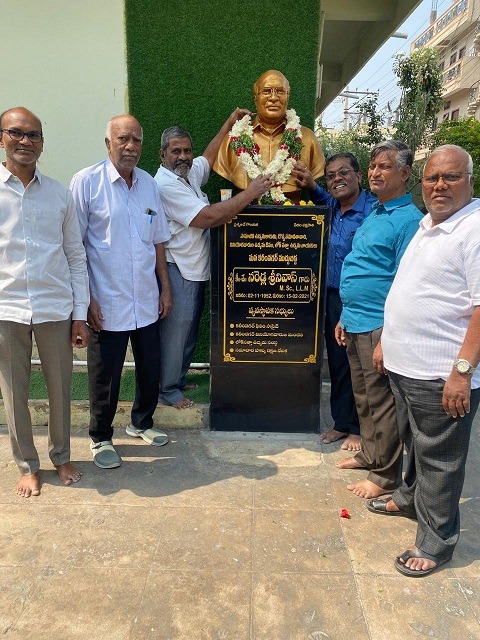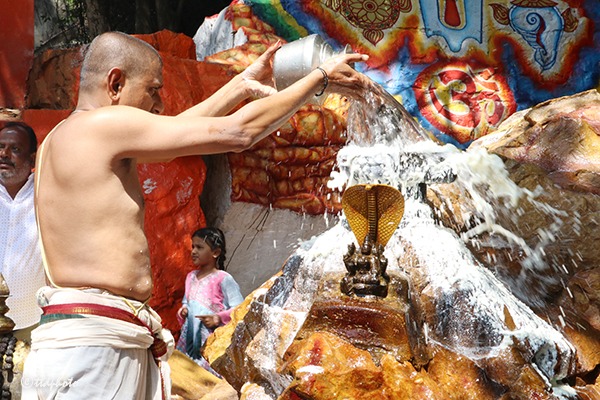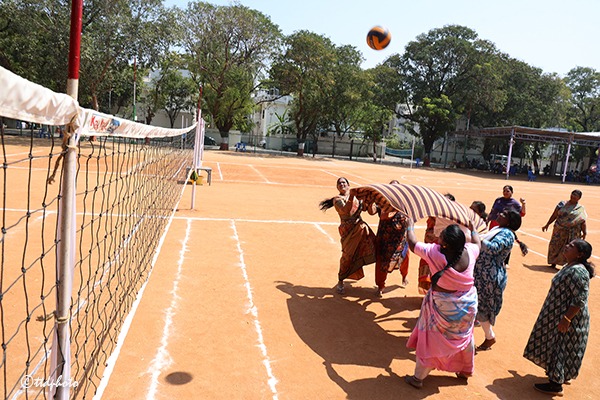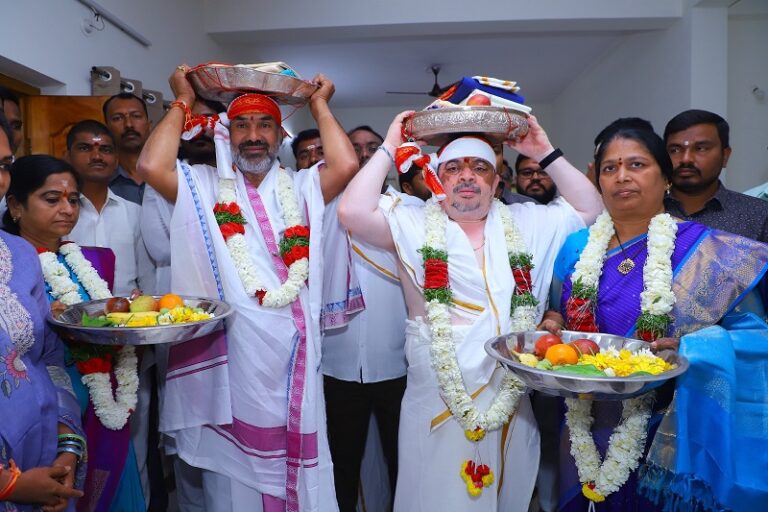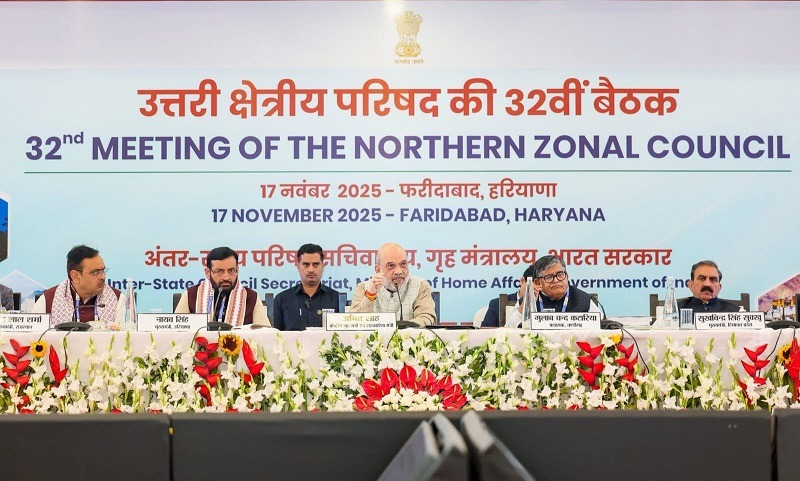
NEW DELHI, NOVEMBER 18, 2025: Union Home Minister and Minister of Cooperation Amit Shah emphasised that the sectors of cooperation, agriculture, and fisheries have the potential to become the most powerful engines for poverty eradication, livelihood enhancement, and mass employment generation across the country. He made these remarks while chairing the 32nd meeting of the Northern Zonal Council (NZC) held in Faridabad, Haryana, attended by Chief Ministers, Lt. Governors, Administrators, Union Home Secretary, senior officials, and representatives of various central ministries.
The meeting witnessed the participation of Haryana Chief Minister Nayab Singh Saini, Punjab Chief Minister Bhagwant Mann, Himachal Pradesh Chief Minister Sukhvinder Singh Sukhu, Rajasthan Chief Minister Bhajan Lal Sharma, J&K Chief Minister Omar Abdullah, Delhi Chief Minister Rekha Gupta, and senior dignitaries including Lt. Governors of Delhi, Ladakh, and Jammu & Kashmir, and Administrator of UT of Chandigarh. The gathering reaffirmed the Centre–State partnership as a cornerstone for strengthening governance and development.

Amit Shah reiterated that cooperation-led initiatives are significantly reducing poverty and generating self-employment opportunities in rural and semi-urban India. He invoked Hon’ble Prime Minister Shri Narendra Modi’s vision of “Sahkar Se Samriddhi”, noting that cooperatives have emerged as major contributors to inclusive growth and economic resilience. He stated that GDP growth alone cannot indicate national prosperity, unless every citizen is uplifted above the poverty line.
Highlighting the achievements of the Ministry of Cooperation (MoC), Government of India, Shri Shah informed that 57 nationwide reforms have been rolled out to strengthen the cooperative ecosystem. These include:
- Computerisation of all PACS to improve transparency and service delivery
- Formation of three national-level cooperative bodies, marking a new era of cooperative excellence
- Establishment of Tribhuvan Sahkari University, the first of its kind to promote cooperative education
- Reform-driven improvements in governance, audit, financial discipline, and operational efficiency
The Minister emphasized that the cooperative sector will continue to be a key driver of self-reliance, food security, and rural entrepreneurship, especially in agriculture and fisheries. He called upon states to strengthen cooperative institutions at the grassroots to ensure equitable growth.
The meeting commenced with heartfelt tributes to the victims of the recent Delhi car bomb blast and Nowgam Police Station explosion, followed by a two-minute silence. Shri Shah assured that under the leadership of the Prime Minister, the nation remains committed to eliminating terrorism in all forms and ensuring justice for the victims.
Reaffirming the vision of “Strong States, Strong Nation”, Shri Shah highlighted that Zonal Councils have emerged as powerful platforms for policy dialogue, administrative coordination, and dispute resolution. Since 2014, Zonal Council engagements have more than doubled, with over 1,300 issues resolved, demonstrating the Centre’s commitment to collaborative federalism.
The Minister also stressed priorities across governance and social justice, including:
- Faster justice delivery in cases related to women and children
- Expansion of Fast Trial Special Courts for POCSO-related offences
- Strong implementation of new criminal laws, with early positive outcomes
- Adoption of technology-driven investigation and justice systems
- Strengthening nutritional security to eliminate malnutrition and stunting
- Greater promotion of millets to enhance food and income security
- Improved coordination in areas of water management, environment, financial inclusion, and welfare delivery
As Minister of Cooperation, Shri Shah urged states to further expand cooperative-based interventions, especially in fisheries, agri-value chains, credit delivery, food processing, and rural industries, ensuring that cooperative benefits reach the last mile. He further encouraged states to promote patriotism, unity, and cultural pride through Vande Mataram initiatives.
The 32nd NZC meeting concluded with a renewed resolve among states to strengthen cooperative governance, improve service delivery, and accelerate policy alignment with national priorities. The Ministry of Cooperation remains committed to empowering millions of farmers, women, youth, and rural entrepreneurs through a strong, transparent, technology-driven, and future-ready cooperative ecosystem.

